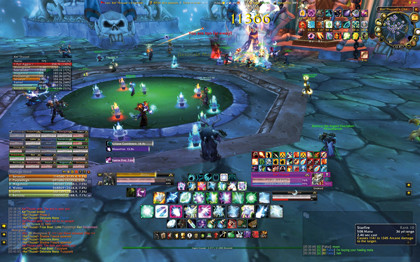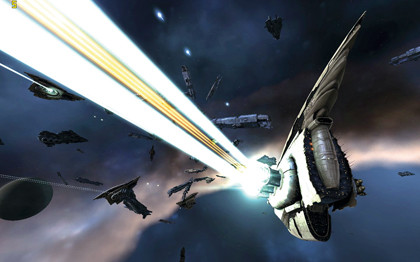Cheating in games: the good, the bad, and the entirely necessary
There's more than one meaning to cheating in games
Sign up for breaking news, reviews, opinion, top tech deals, and more.
You are now subscribed
Your newsletter sign-up was successful
While there will always be coders who enjoy exploiting games and finding ways to gain an advantage through technological prowess rather than gaming skill, there's also much being done by developers and publishers of games to provide us with counter measures against cheating.
Identifying and banning cheaters from games often comes about through months of painstaking research, especially in MMOs where bots can be difficult to detect without human intervention. It also requires teams of programmers to be constantly monitoring the cheater community, to come up with defences against it in the same way that other coders come up with ways to block and eradicate viruses.

In first person shooters the depth of the challenge often provokes players to use cheat programs, and it has therefore become widespread. Cheaters aren't always able to get away with it, however, because systems for identifying and banning cheats automatically now fight a never-ending war against the hackers and bot designers.
One such battle is being fought by PunkBuster, an anti-cheating system developed Tony Ray and his company, Even Balance. We talked to Ray about why he'd been inspired to devote his life to fighting the cheats and he explained that his experiences as a Team Fortress Classic clan leader had led him to explore the ugly side of cheating in that game.
As, at the time, the developers had said it was up to the community to deal with such problems, he took matters into his own hands.
"I have been to several high profile LAN tournaments," explains Ray, "and have seen the best players in the world compete in person. Many of those get called cheaters online because the average player can't comprehend how a real person can be that good.
So at some point, it occurred to me that if a referee was watching over the shoulders of players, it would be very hard to cheat and get away with it, plus the good players would get the credit they deserved for their skill instead of constant suspicion."
Sign up for breaking news, reviews, opinion, top tech deals, and more.
This idea of a virtual referee was the genesis for PunkBuster. "I imagined a program that would run in the background and 'watch' what was going on during gameplay, " says Ray. "That's how the seeds for PunkBuster were planted."
Ray got to work on the idea of a program that would report on individual gamers to a central server. PunkBuster, which was initially nothing more than another free tool for gamers, was to spot cheats as they were loaded into memory and stop the players from connecting to PB protected servers.
PunkBuster wasn't to remain a pure community effort, however, as the system soon proved its worth in countering cheats in these games. "I had no support from game developers at the time, so PunkBuster was originally developed as a standalone application that ran in the background during gameplay … In 2002, id Software gave us a shot at supporting Return to Castle Wolfenstein and it was fully integrated with the game and things just took off from there."
As online games become more popular, so the cheating problems became worse. And the more popular a specific game, the more cheats are developed for it, as Ray explained: "We have found a direct correspondence between the number of players and how bad the cheating problem is for a given title. Games with few players rarely have much of a cheating problem. The popular titles are heavily targeted by cheaters and hack writers."
For Ray this is nothing more than the bad side of human nature showing itself in our game worlds. "I've always said that online gaming will be cheat-free the same day society is crime-free," says Ray. "There will always be people trying to cheat and some will succeed. Just like in real life there will always be people trying to break the law for their own gain. We have to keep after the cheating problem just like the police do in society to try to provide a deterrent against getting caught cheating."
Cheaters by right
There's one situation in which programs like PunkBuster won't come in handy, however, and that's when you're playing a game against the developers who made the game in the first place.
Famously, Valve Software revealed their in-built cheats for Half-Life 2 in a game against a bunch of Capture The Flag modders. As the game unfolded the community modders were suddenly rendered helpless as they watched the Valve team transform into their super-powered alter-egos, with automatic missile launchers and other crazy weapons.
Although meant as a joke, the event did seem to upset some gamers, who didn't seem to quite understand that – in this instance – the cheating was just a little fun on the part of the developers.
Of course it can go seriously wrong for developers, too, as in the case of the Eve Online developer who provided help for his in-game faction.

By acting with a bias, he tainted the neutrality of the developers, and damaged relationships between team and game community forever. Events like these, where real world and virtual world mingle, make it impossible to come up with a game design solution.
This was, arguably, the first time game cheating changed life in the real world, as Eve Online's developers, CCP, set up an independent ombudsman council to police the game against such events in the future.
Cheating and cheaters, it seems, will always find a way, no matter how extreme or new the game might be. Whether it's hard-coded by devs or brought in after, we'll have to be ready to go to ever more extreme measures to identify, understand and defeat it.